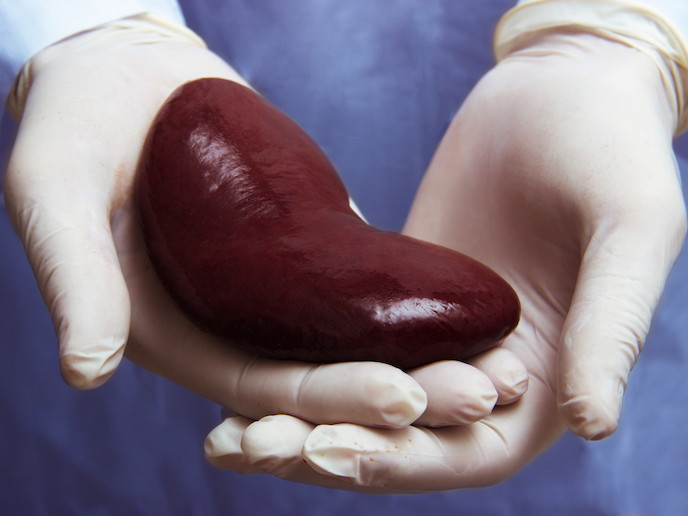New drug aims to increase the success of kidney transplants
Donor kidneys lack a natural blood flow when waiting to be transplanted into the recipient. Known clinically as delayed graft function(opens in new window) (DGF), the resulting kidney injuries and potentially impaired function of the organ can cause the receiving patient to go into dialysis within the first week of the transplant – among other issues. Given the alarming shortage of organs available for transplantation, the prevention of DGF is a top priority for the transplant community. This is why the Swedish pharmaceutical company Corline Biomedical(opens in new window) is developing a drug aimed at improving the outcome of kidney transplantations. Called Renaparin®, the candidate drug is used to treat the donor organ outside the body and, by doing so, repair the damaged vascular bed before the transplantation. With preclinical data showing that Renaparin® improves kidney functionality after transplantation, Corline is eager to advance the drug to the next level. The EU-funded Renaparin project supports the clinical trial needed to move the drug towards registration and eventual commercialisation. “The intent is to demonstrate Renaparin’s® potential to improve the number of successful kidney transplantations,” says project coordinator Dr Henrik Nittmar. “The resulting clinical safety data will constitute the basis for further clinical development and commercialisation of the product.” Bumps in the road Through Phase I/IIa clinical trials in humans, this project aims to demonstrate that the drug is safe for use in a clinical setting. Furthermore, the project intends to evaluate several clinically relevant endpoints that could be used to show that Renaparin® is effective at preventing DGF, along with gaining end-user experience that is critical to guiding Corline towards registering the drug for approval and subsequent marketing and sales efforts. However, the launch of the clinical trial phase was significantly delayed due to inconsistent data on Renaparin®’s stability. In response, the project assembled a team of internal and external experts who worked with the Swedish Medical Products Association(opens in new window) (MPA) to overcome any regulatory concerns. The team also worked closely with the Swedish transplant surgeon community to gain their trust in the drug. “It took us six months of hard work before we were able to rule out any patient risks and re-submit the updated trial application to the Swedish MPA for renewed approval,” says Dr Nittmar. “Compared to the industry standard, we were able to handle this issue remarkably fast – a point of great pride amongst the project team.” Promising initial results Back on track, researchers continue to work towards the end goal of demonstrating Renaparin®’s safety for use in treating DGF. With the clinical trial running, the drug has already been used to treat patients in the intended way, and feedback from transplantation surgeons has been positive. By the end of the project in February 2020, researchers are confident that Renaparin® will have completed Phase I/IIa clinical trials and be well-positioned for further development in Phase IIb/III trials. “Corline’s long-term strategic focus lies in establishing Renaparin® as a new cell replacement technology in kidney transplantations. This project plays a key role in helping us achieve that goal,” says Dr Nittmar.







